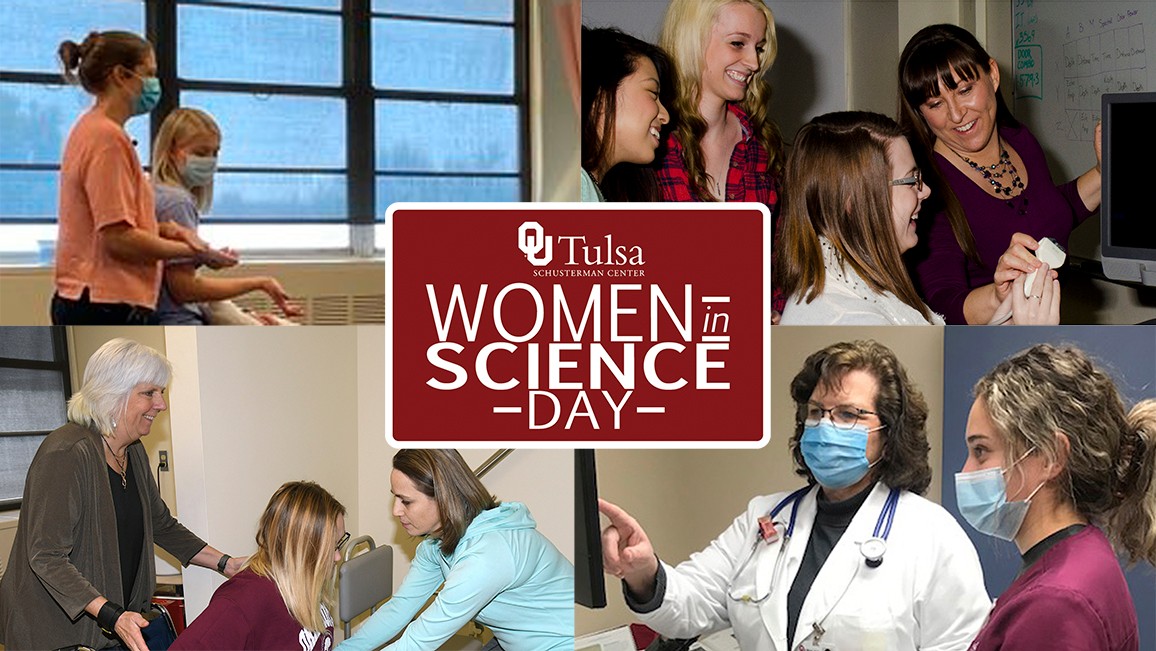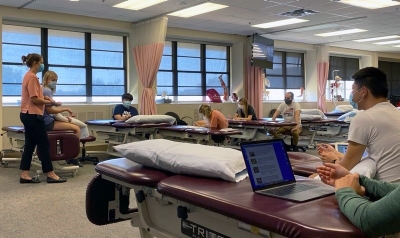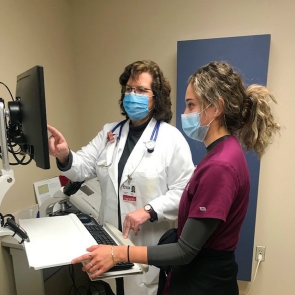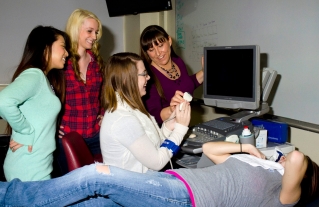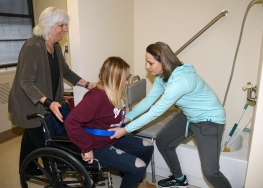Q. How did you decide to pursue a career in a science-related field?
A: I was struggling with knowing what my future career plan should be. Ultimately, I knew that I wanted to help people. My natural strengths and tendencies were both scientific and creative.
Q: What got you into science?
A: My mom was in the medical field, so I was very drawn to science. We did crazy things together like science experiments and exploring our world through a microscope. My dad on the other hand was very creative, with the mind of an engineer. We spent our weekends together designing and working on projects together.
Q: What advice do you have for female students interested in the science fields?
A: So, what to do? I enjoyed both science and art, and I wanted to help people! I was very involved in the youth organization Camp Fire, and I was working towards earning my “WoHeLo” Medallion (stands for Work Health Love), the highest award in Camp Fire, quite similar to an Eagle Scout. One of my camp fire mentors introduced me to Occupational Therapy and through my Camp Fire “WoHeLo” experience I observed occupational therapists at work with children and adults at various hospitals and rehabilitation facilities. I quickly learned that occupational therapy was the perfect career for me.
Occupational therapy is the only profession that helps people across the lifespan to do the things they want and need to do through the therapeutic use of daily activities (occupations). Occupational therapy practitioners enable people of all ages to live life to its fullest by helping them promote health, and prevent—or live better with—injury, illness, or disability.
Q: Anything else you think would be good for us to know.
A: When I reflect back to those days of not knowing I often wonder what my life would look like today had I not found my “perfect career”. I encourage other individuals interested in science to:
1. Ask yourself what you like to do, and what are your strengths?
2. What career fields provide you the opportunity to do those things?
3. Get involved in organizations that focus on helping you to learn and to grow, such as Camp Fire, Scouts, or clubs at your school.
4. Search the internet. What are your options? If you believe there is something out there that you might like to do, schedule an observation time. If told no, try another place.
5. Consider working in the field as a technician.
6. Take extra classes in high school to strengthen your skills, i.e. AP science courses, physics, etc.
7. Schedule a time to meet with student services, or professors who teach in the field that you are considering.
8. Study hard, work hard, and enjoy. You’ve got this!

